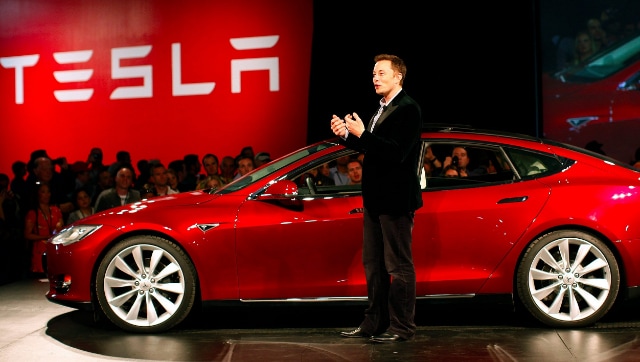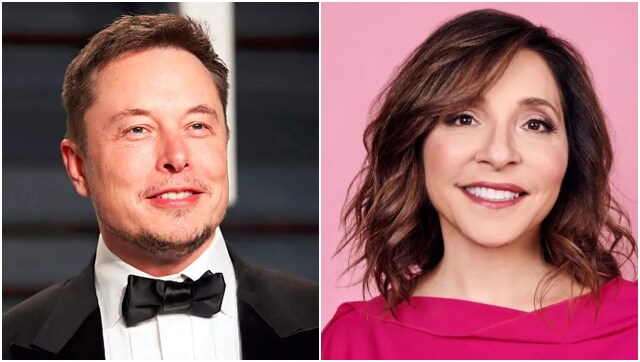Is Tesla looking to set up a factory in India? Execs meet Indian officials seeking incentives and tax breaks
Tesla executives met with Indian government officials, exploring possibilities for government issued grants and incentives to set up an EV factory and a battery plant in India. Both India and Tesla have major EV-related goals set for 2023

Tesla executives met with Indian government officials, exploring possibilities for government issued grants and incentives to set up an EV factory and a battery plant in India. Both India and Tesla have major EV-related goals set for 2023
Tesla has started discussions with government officials in India and is seeking incentives and grants to set up a factory in the country for the production of their EVs and batteries. The discussions indicate the automaker’s renewed interest in entering the Indian market.
Tesla has put forward a fresh proposal to establish a factory in India for the production of EVs. Additionally, there have been talks about the possibility of manufacturing EV batteries locally.
Related Articles
Tesla’s interest in India
A source close to the officials with whom Tesla executives met, told Reuters that Tesla is currently in the exploratory phase, seeking to understand the local policies and regulations and how to best navigate them.
During the visit, which has not been publicly disclosed by either Tesla or any Indian ministry, the company reportedly met with Rajeev Chandrasekhar, India’s deputy IT minister, who is one of the highest-ranking officials Tesla has engaged with till now.
The Tesla delegation included Karn Budhiraj, a senior supply chain executive based in the United States.
A fresh approach
These discussions in India signify a change in approach for the US electric car manufacturer. Previously, Tesla had focused on seeking reduced import taxes on cars, which can reach up to 100 per cent in India, leading to a deadlock in talks with the Indian government. While India is eager for Tesla to establish local manufacturing, the company insisted on testing the demand of their by selling its imported vehicles first.
One possible significant factor that could be influencing Tesla’s change in approach is the recent discovery of substantial lithium reserves in India’s Jammu and Kashmir regions. While it may take some time before lithium is mined and its benefits realized, this discovery has caught the attention of major global powers. This is because it has the potential to transform India from an energy-dependent nation to a significant player in the global lithium supply chain.
Also read: Explained: Why discovery of lithium deposits in J&K is a big deal for India
Recent discussions have touched upon India’s taxes on imported cars, but the primary focus has been on exploring how Tesla can leverage a government program.
India has allocated approximately $6 billion for two programs aimed at promoting EV sales and manufacturing. These programs offer cashback incentives to automakers and battery manufacturers for selling and exporting locally manufactured vehicles and parts.
According to Mohan Shukla from White Dolphin Media, a public policy advisory based in New Delhi, it appears that Tesla has approached the Indian market with a different perspective this time, aiming to take advantage of the thriving automotive industry in the country.
Shukla suggests that by establishing a manufacturing plant in India, Tesla would be in a better position to negotiate favourable terms, including taxes.
Tesla’s roadmap to 2030
Tesla has set an ambitious goal of selling 20 million EV annually by 2030, which would require significant investments in assembly plants and battery production in major upcoming EV markets.
Outside of the United States, Tesla currently operates its largest factory in Shanghai, China, and another one in Brandenburg, Germany.
In addition to India, Tesla has been engaging in discussions over the past year with officials from Indonesia and South Korea regarding potential investments in those countries.
India, being the world’s third-largest automobile market, has set an ambitious target under Prime Minister Narendra Modi’s administration. The goal is for EVs to account for 30 per cent of the country’s total car sales by 2030, a substantial increase from the current 1 per cent market share.
Read all the Latest News, Trending News, Cricket News, Bollywood News,
India News and Entertainment News here. Follow us on Facebook, Twitter and Instagram.
also read

Top ad executive Linda Yaccarino replaces Elon Musk as Twitter CEO
Yaccarino has worked at NBCUniversal for nearly 12 years — with her team generating more than $100 billion in ad sales since 2011, her company bio says

Change In Command: Elon Musk to step down as Twitter CEO, NBC Exec Linda Yaccarino to take over
Elon Musk will soon step down as Twitter's CEO, take over the role of CTO and Executive Chairman. Musk will be bringing in Linda Yaccarino, as the Twitter CEO. Yaccarino is a seasoned advertising executive and will be vital in bringing advertisers back to Twitter.

'Offer me money or power... I don’t care if I lose money': Elon Musk says will tweet what he wants
Elon Musk was accused of anti-Semitism and was asked why does he tweet anything that comes to his mind. To this, Musk defiantly replied, saying that he will tweet what he wants, even if the consequence means him losing money.


